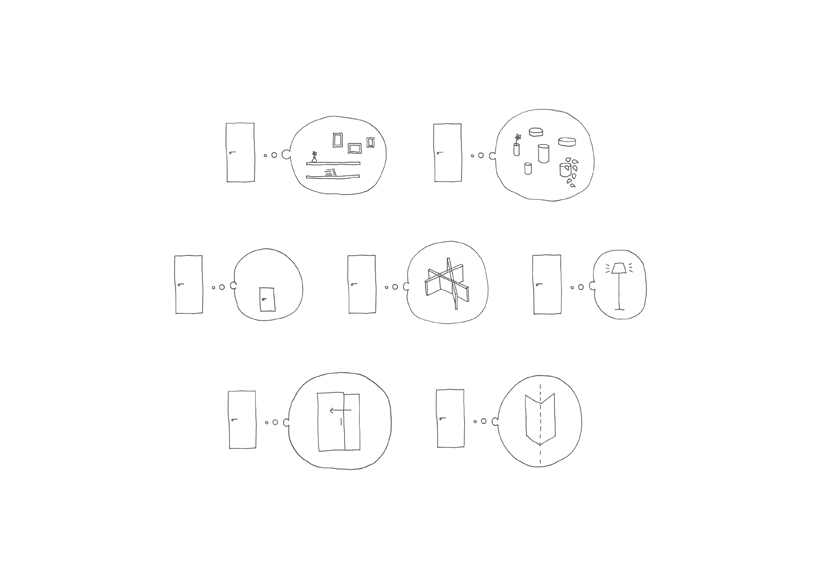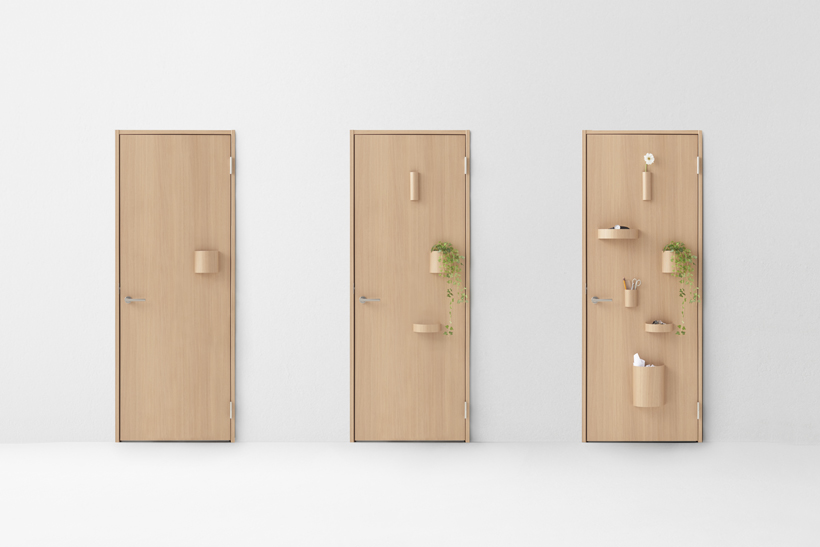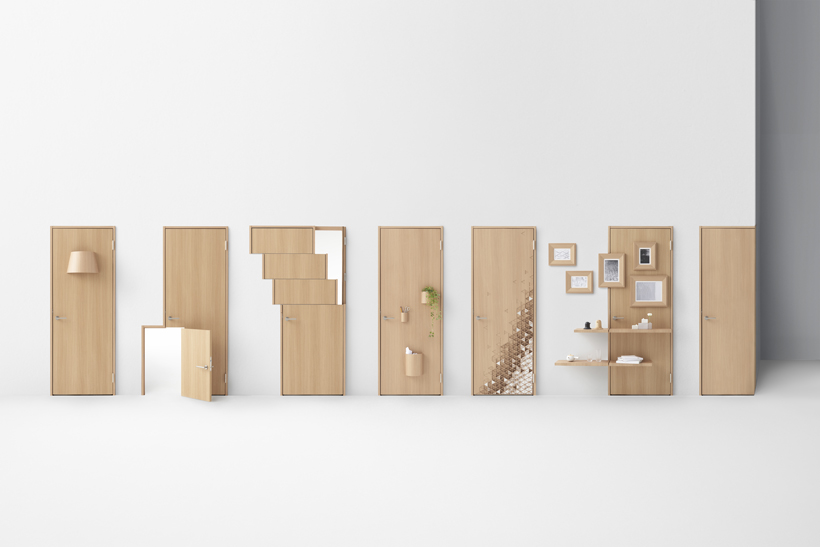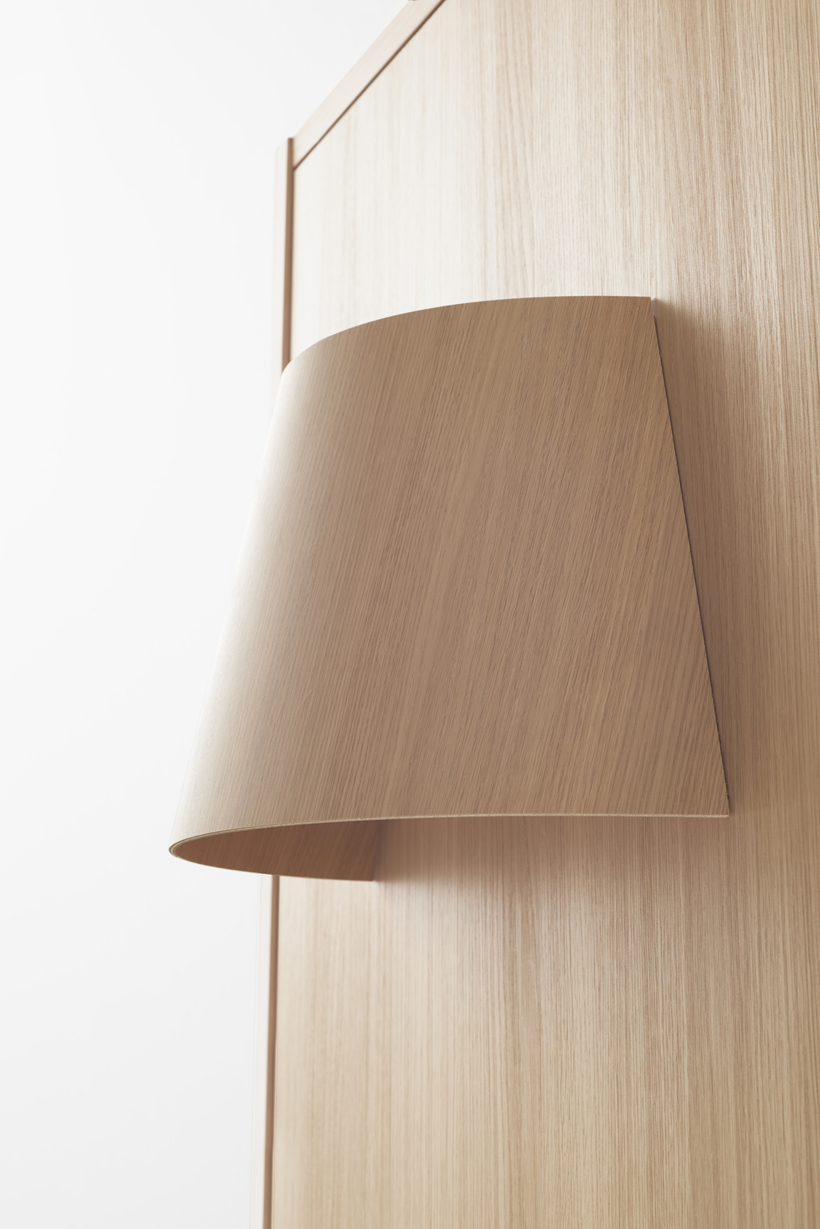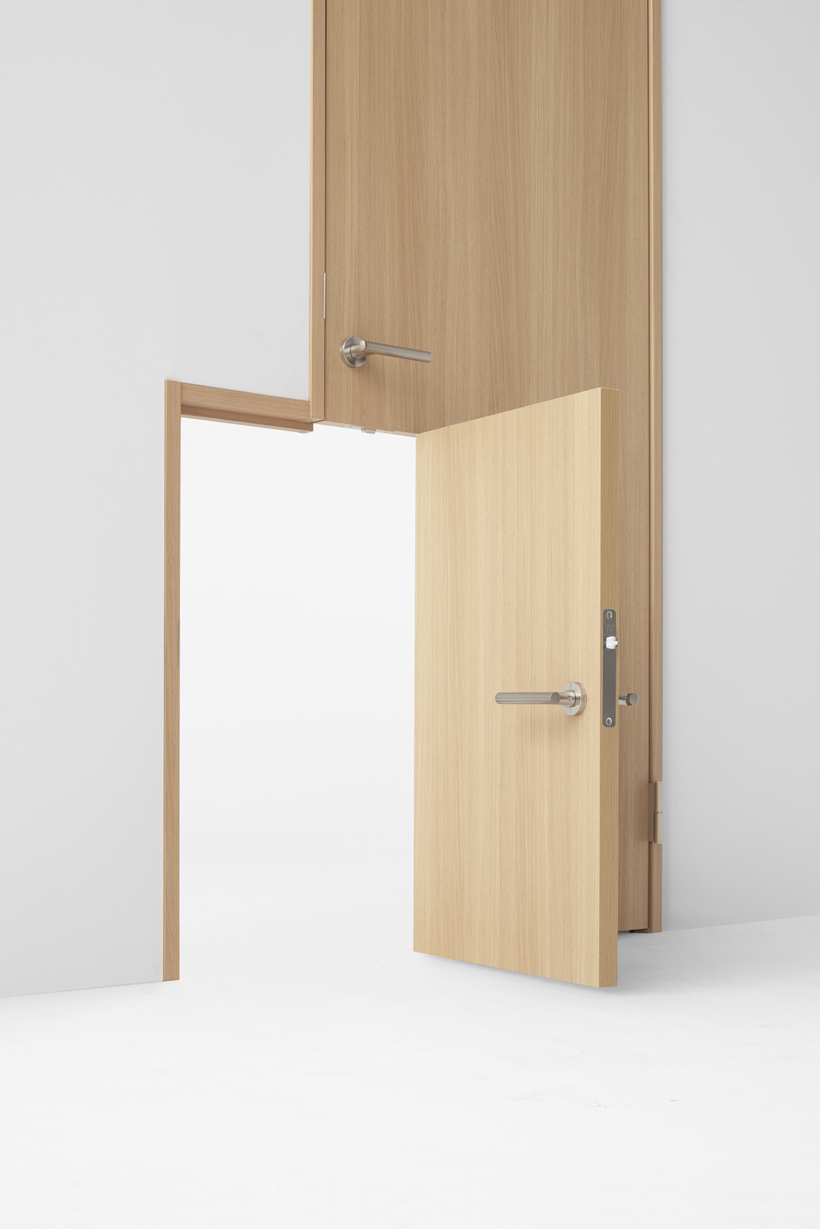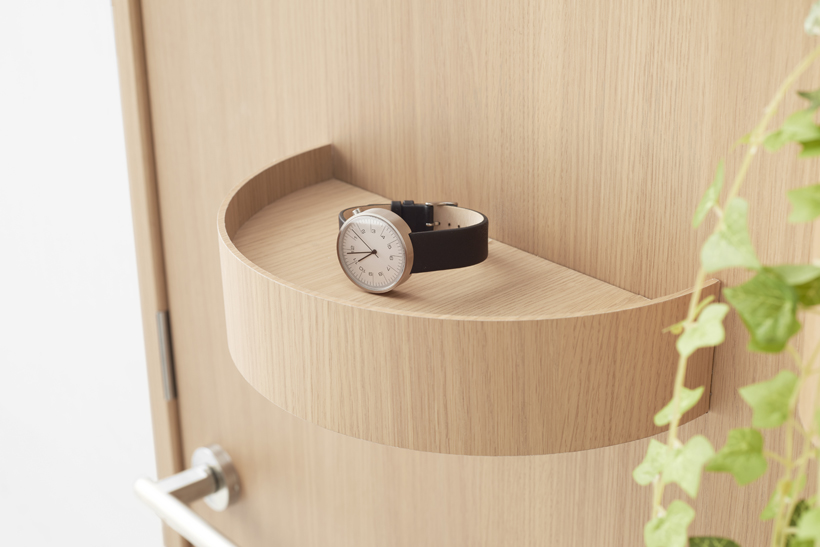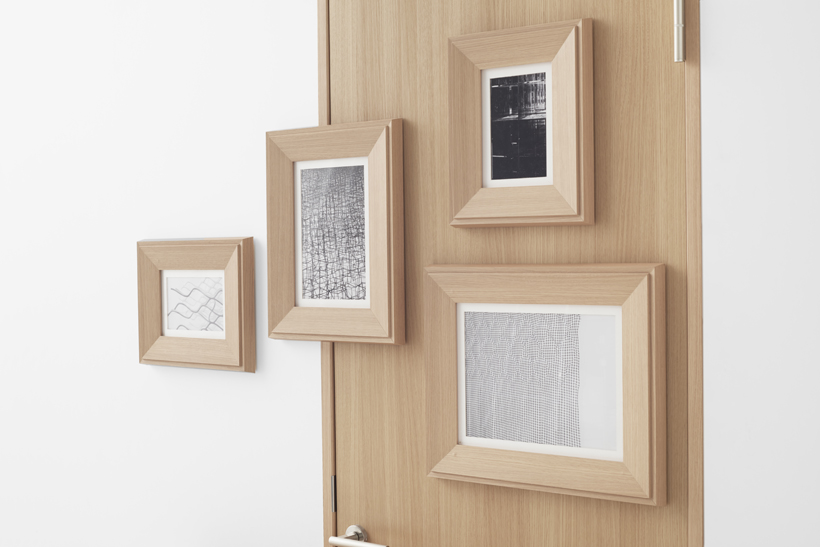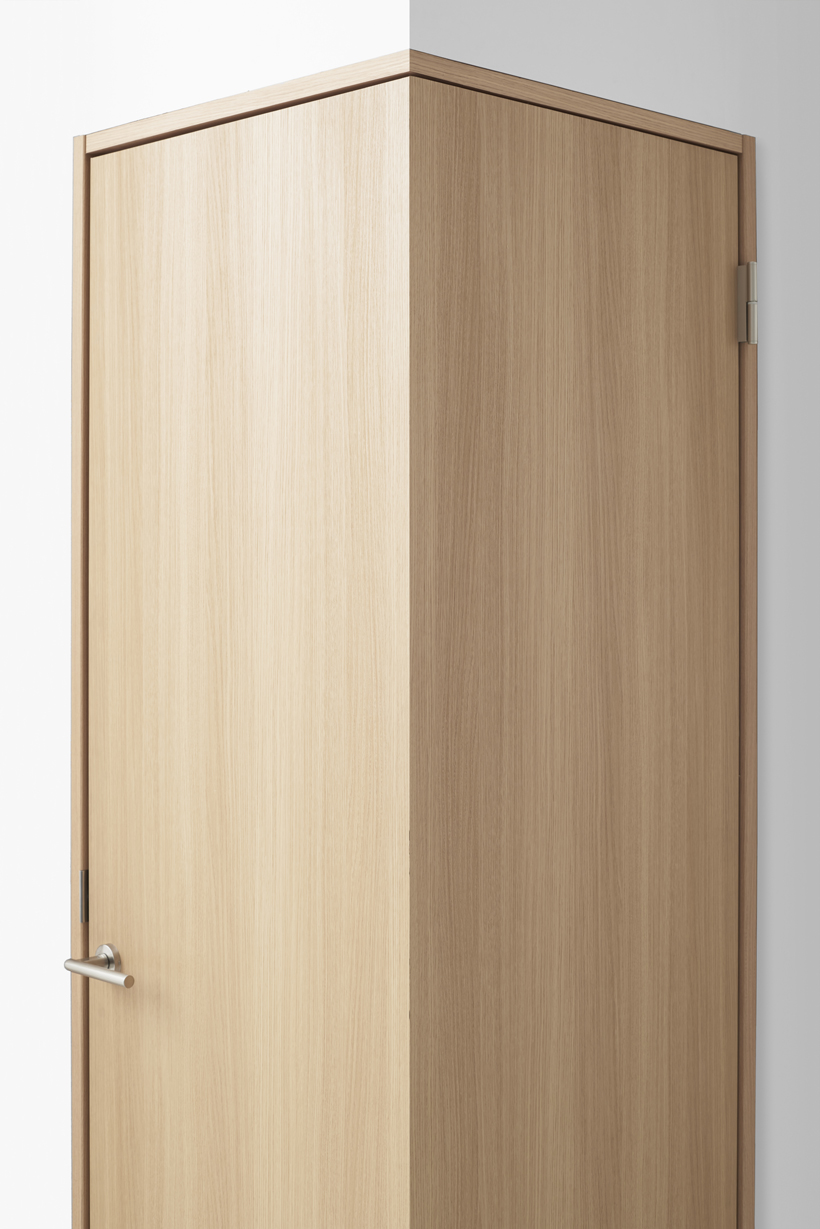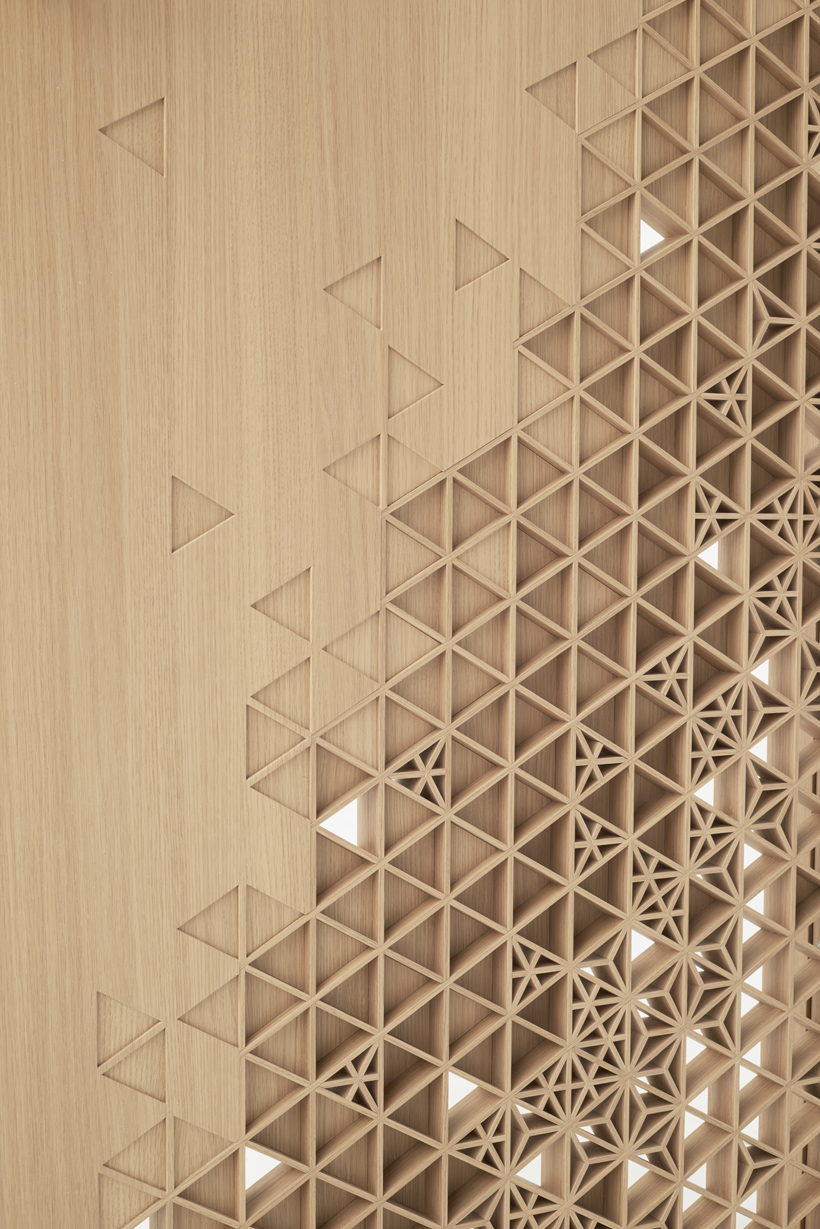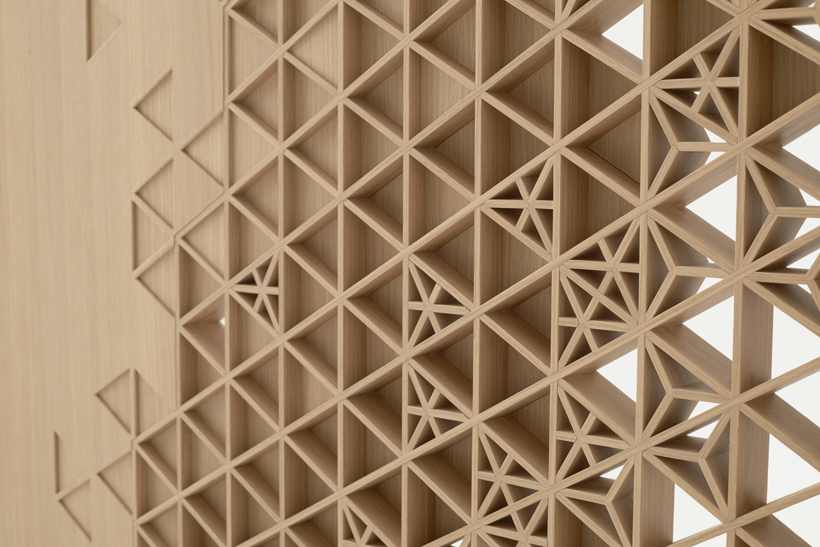seven doors
Seven door designs to commemorate the 70th anniversary of Abe Kogyo, a manufacturer of wooden front and interior doors, partitions, fixtures and custom-made furniture. All have a basic default design, and each one has been treated with a different idea born from the various techniques and experience held by the company. These doors do not end up being just one-off products. They have opened up new possibilities for various byproducts, displaying a wide range of product development for the future.
lamp
A door and lighting fixture in one, employing the wiring techniques used in electronic locks.
baby
Abe Kogyo also manufactures various interior fittings for nurseries and pre-schools, and this gave rise to the idea of having adults and children walk through doors that match their respective sizes.
slide
Much like a window blind, this door can create small spaces to let light in, to let a breeze through, and to create a greater sense of connectivity between rooms. From techniques used to make sliding doors, this design idea has once again added a new and functional value to the conventional door.
hang
A door fitted with internal 2.5mm magnet sheet, allowing the user to attach various accessories to it such as trays, dust bins, flower pots, vases, and other containers. This design feature has given a new function to the door as a storage device, rather than just a thing to go in and out of.
kumiko
A door that applies kumiko, a technique of assembling wooden interior lattices without nails, most often used in creating door fixtures for traditional Japanese tatami rooms. The kumiko gradually blends into the plain portion of the door. This is a design feature made possible only by the high industrial caliber and intricate handiwork of Abe Kogyo.
wall
By covering this door with shelves and picture frames that one would usually fit to a wall, this unit dims the very concept of a door, allowing it to blend into the wall to an unprecedented extent.
The shelves and frames have been made by applying the ‘V-cut’ technology used for finishing the edges of flush doors. Also, the frames are easy to remove and reattach, and they have been fitted with a newly designed connector to prevent them from shaking when opening and closing the door.
corner
A door that allows the user to enter and exit through corners of a room, transforming the way we think about interior layout. As this door opens particularly wide, an additional practical result of this design has been easier and more comfortable wheelchair access.
